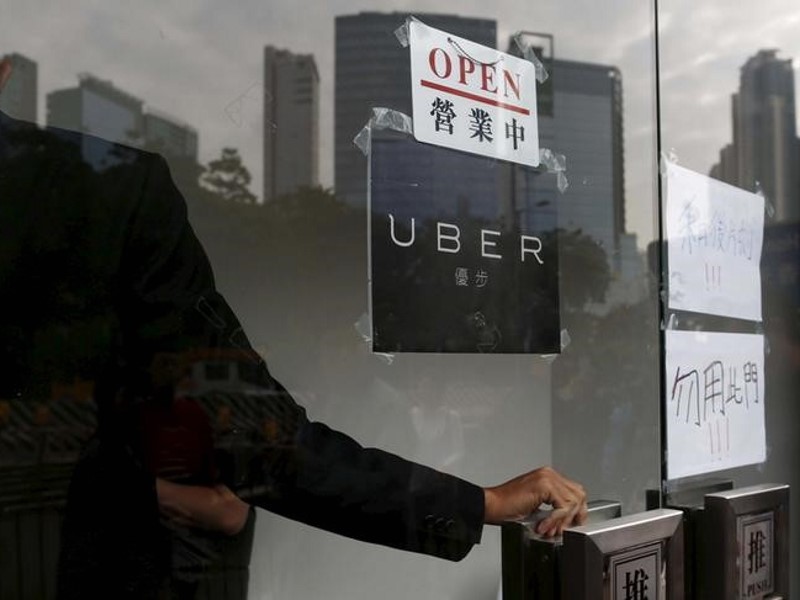
A merger between Chinese ride-hailing firm Didi Chuxing and the China unit of US rival Uber could face its first hiccup after China’s commerce ministry (Mofcom) said on Tuesday it had not received a necessary application to allow the deal to go ahead.
Didi’s acquisition of Uber’s China operations, announced on Monday, will create a roughly $35 billion (roughly Rs. 2,33,551 crores) ride-hailing giant and could raise monopoly concerns as Didi claims an 87 percent market share in China. Uber China is the second largest player.
Mofcom, one of China’s antitrust regulators, said at a news briefing that the two firms need to seek approval for the deal to go ahead. It had been unclear previously whether such a filing would be required as both firms are loss-making in China.
“Mofcom has not currently received a merger filing related to the deal between Didi and Uber,” ministry spokesman Shen Danyang said. “All transactors must apply to the ministry in advance. Those that haven’t applied won’t be able to carry out a merger” if they fall under applicable antitrust and merger rules, he said.
Didi Chuxing did not immediately respond to a request for comment. Uber did not respond to requests for comment.
Didi and Uber have been in a fierce battle in China, spending billions of dollars to subsidise rides and win users.
Other players, however, could step up competition.
Jia Yueting, head of LeEco, the parent of smaller ride-hailing rival Yidao, said in a social media post the firm would offer steep rebates to attract passengers to help avoid there being a monopoly in the market.
“Yidao will soon kick off an even more aggressive cashback campaign,” according to a translation of Jia’s posting provided by a LeEco spokeswoman.
Regulations released last week that take effect on November 1 legitimize ride-hailing, but prohibit services from offering rides below cost.
© Thomson Reuters 2016
Share a screenshot and win Samsung smartphones worth Rs. 90,000 by participating in the #BrowseFaster contest.
[“Source-Gadgets”]











